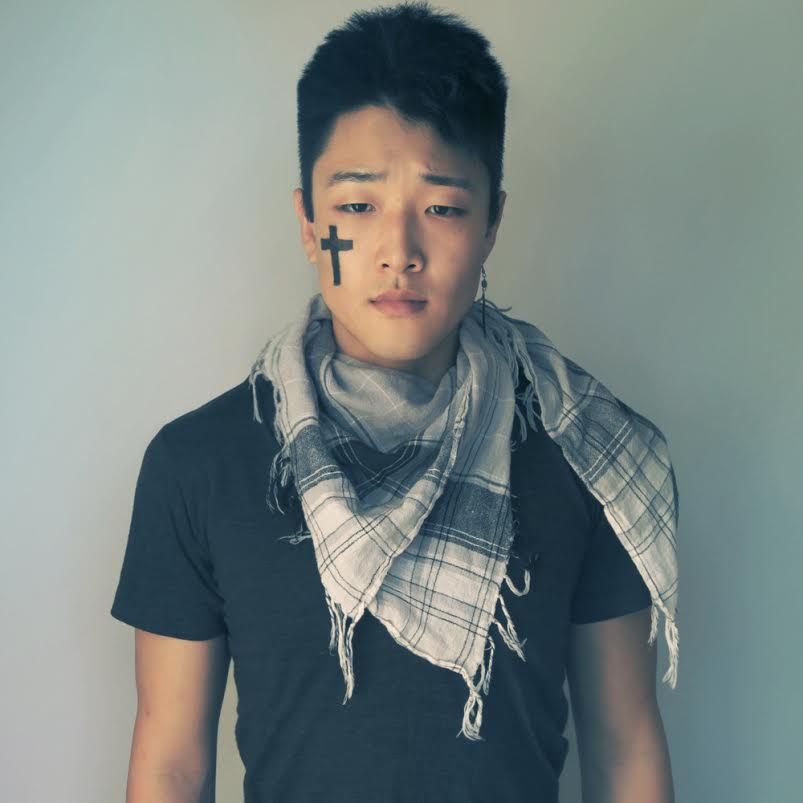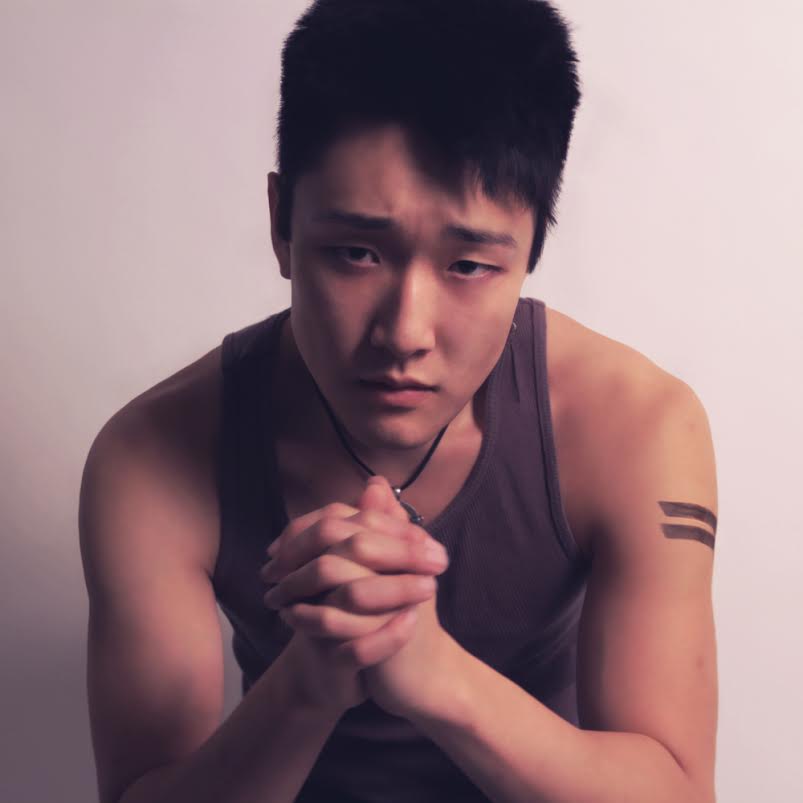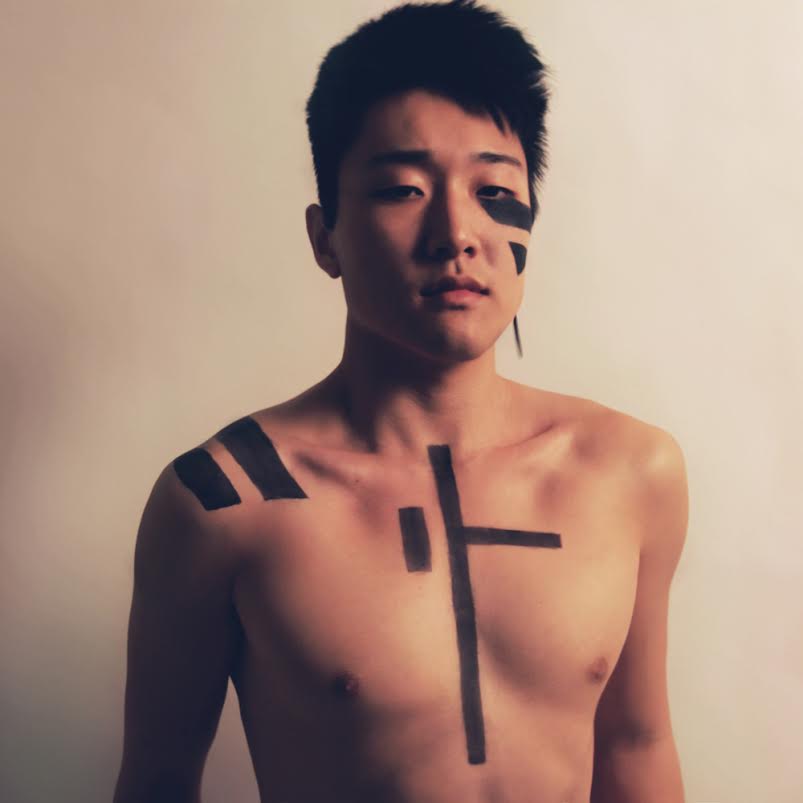- California Assembly OKs highest minimum wage in nation
- S. Korea unveils first graphic cigarette warnings
- US joins with South Korea, Japan in bid to deter North Korea
- LPGA golfer Chun In-gee finally back in action
- S. Korea won’t be top seed in final World Cup qualification round
- US men’s soccer misses 2nd straight Olympics
- US back on track in qualifying with 4-0 win over Guatemala
- High-intensity workout injuries spawn cottage industry
- CDC expands range of Zika mosquitoes into parts of Northeast
- Who knew? ‘The Walking Dead’ is helping families connect
Indie pop artist Jhameel: Seeing beauty in imperfection
By Tae Hong
“Balanced asymmetry,” Jhameel Kim demonstrates, as he lines up the edge of a teaspoon with the handle of his coffee cup. “I’m OCD. I’ve gotta have things symmetrical, but what I realized a couple of years ago is that you can satisfy that tick in your brain by accepting asymmetry and keeping it balanced, accepting the imperfection.”
The 24-year-old indie pop artist, freckled and boyish, looks at home sitting inside the faintly hipster Literati Cafe in Santa Monica as he talks about the philosophy behind his music and his life.
Kim’s a self-produced electro-pop artist inspired by pop royals like Michael Jackson and Prince whose thousands-strong fanbase only continues to grow as he uses YouTube and Internet word-of-mouth as his primary platform.
His main message nowadays is that it’s OK to be flawed — or asymmetrical, as he calls it — as long as beauty can be found in that flaw.
“I feel like if we just accepted the circumstances that we’re in, what we’re given, and make balance and beauty out of that instead of trying to strive for something that’s completely not you, our energy is better spent,” he says.
There’s a merit to that, especially given his uneven background — half-Korean, quarter-Mongolian, quarter-Japanese; born in New Jersey, but a resident of a handful of states growing up; the speaker of five languages, among them Korean, Russian, Spanish and Arabic, the language of his chosen name; the player of 14 musical instruments; a soldier-in-training-turned-singer.
The idea applies to his time in the U.S. Army’s Reserve Officers’ Training Corps as well. To a liberal-minded Arabic major at the University of California, Berkeley, military culture at Fort Knox boot camp seemed irrational, rampant with racism and, in the end, too removed from his social and political views.
Kim quit and turned to music. “[Music] was always in me, but buried and pounded deep down,” he says.
Years later, he’s an indie success who self-produces, choreographs, directs and edits his music with the help of his team, bassist Ryan Rubin and guitarist Kasper Smits.
Music was a constant presence for Kim growing up. His father, a professional violinist, met his mother, a classical composer, at a music school. In their home, his father would regularly practice violin; Kim, who initially found interest in trumpet, eventually started playing the guitar, drums and a dozen more instruments.
“Whatever I had around, I would just play it,” he says. “It was relatively natural to me.”
In 2009, Kim released his first album, the eponymous “Jhameel,” followed three EPs and “The Human Condition.”
His latest album, a two-year effort that saw the light of day in May, debuted a “Game Of Thrones”-inspired music video for “Lion’s Den” that has Kim in face paint, a recurring theme in his productions. That, too, is a metaphor for seeing beauty in imperfection, he says, as well as a representation of a fantasy element he wants to bring to his music.
“The motivation has always been imposing fantasy onto my personal and friends’ life experiences,” he says. “Exaggerating reality. [My music] is dramatized. It’s more interesting that way. It’s like Hollywood, based on a true story — but you’re not going to tell the completely true story.”
A lot of experimentation and trial-and-error went into finding ways to tell those stories through music and through music videos. It’s still a work in progress. But with Rubin and Smits by his side, four music videos have been released in the last two years.
The singer has been described by The Guardian as “a pop polymath … the army’s loss is pop’s gain” and his music by MTV Iggy as “so graceful that it could put him in the running to be the voice of his generation — if enough people download it.”
It’s the headache with using YouTube and Internet word-of-mouth as a platform — you can figure out how to make the videos and get the sponsors, but it’s hard to get your songs on the radio. Kim recognizes the problem. He’s even had a chance to do away with it, having once turned down an offer to work with Atlantic Records.
He and his team found the appeal in creative control and the freedom of creating their own image.
“I think we’re creating something special,” he says. “We’re creating it from the ground up, building a really strong foundation for it.”
That includes with it plans of more than music. The bigger plan is to eventually reach out to people through Jhameel-branded products, including a minimalist speaker line.
For now, one item on his checklist is to find a way into the music market in Korea as an indie pop artist. Another is to keep releasing singles. Through it all, there’s importance in continuing to find happiness in imperfection.
Jhameel, after all, is a name he legally adopted at age 18 that means “beautiful” in Arabic. The name — itself an anomaly when put together with his Korean last name, Kim — is a reminder to himself that imbalance is balance if seen a certain way.
And for the future, he’s got even bigger dreams, dreams beyond Earth, even.
“I would love to go to Mars,” he says. “I have sci-fi dreams, you know? My big dream is to upload my brain onto a computer and explore the universe at the end of my life.”



















Pingback: Beauty In Imperfection Japan | extensions - salon services
Pingback: Indie Gem: Jhameel | seoulbeats